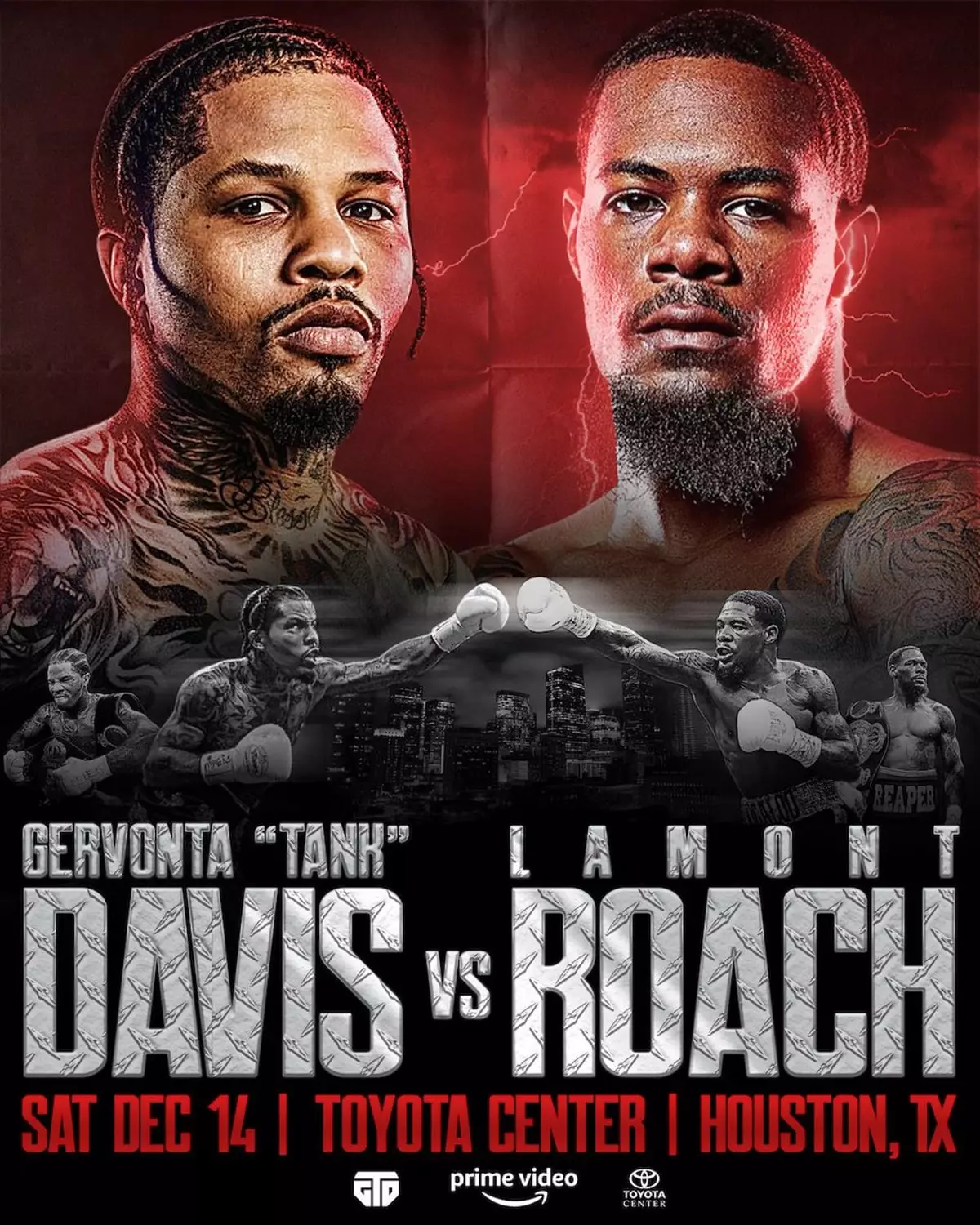The matchup between Gervonta “Tank” Davis and Lamont Roach on December 14 at Houston’s Toyota Center has sparked a myriad of discussions in the boxing community, especially concerning the credibility of Davis’s choice of opponents throughout his career. Davis, who boasts an undefeated record of 30-0 with 28 knockouts, finds himself under scrutiny again, this time for his seemingly unchallenging fight against Roach, who has a record of 25 wins, one loss, and one draw. For many, this contest epitomizes the so-called cherry-picking of opponents, a strategy that might serve more to protect a fighter’s record than to genuinely challenge their abilities.
Critics of the Davis-Roach bout are quick to latch onto the concept of “cherry-picking.” The indicators are glaring: Roach is not even ranked among the top contenders in the lightweight division, and his resume lacks signature victories that would traditionally validate a title shot. Furthermore, the fight is being promoted as an “in-house” affair, as both fighters are affiliated with Premier Boxing Champions (PBC). Many fans feel that the consistent pattern of Davis’s opponents lacks substance, citing a career filled with fighters who do not pose significant threats.
Several prominent boxing enthusiasts and analysts have voiced dissatisfaction over what they deem Davis’s preference for less competitive matchups. If he routinely opted to face boxers like Teofimo Lopez or Devin Haney—names that resonate within the upper echelons of the lightweight division—fans may have been more forgiving of a less challenging fight, such as this one against Roach. Instead, the frustrations mount as observers argue that Davis has been given a steady diet of subpar competition designed to maximize the illusion of dominance while sidestepping true challenges.
Despite the backlash, Davis’s coach, Stephen Edwards, has openly defended the fight against Roach, asserting that it should not be labeled a cherry-pick. Edwards suggests that the critics are projecting their own expectations onto the matchup; their elevated perception of Davis’s talents leads them to believe that anything less than elite opposition constitutes a deliberate act of avoidance. He believes the rationale behind calling the fight a cherry-pick stems from admiration for Tank’s prowess, rather than from a fair analysis of Roach as a competitor.
Edwards’s position may resonate with a smaller pool of fans who advocate for understanding the complexities behind match-making, such as the challenges of balancing a fighter’s career trajectory against the unpredictability of boxing. Yet, his remarks may also come off as defensive, trying to justify a choice that many see as disrespectful to the sport and its competitive spirit.
The dichotomy between perception and reality in this situation encapsulates a larger narrative within professional boxing. The criticisms levied against Davis are not mere whims; they are a sentiment rooted in a broader longing for the sport’s competitive integrity. With the rise of social media and increased access to fight critiques, fans possess the tools to scrutinize a fighter’s career trajectory more than ever before.
The prevailing consensus is that Davis’s stock may be eroded over time. Continuing on this path of carefully curated matchups creates an image of fragility rather than invincibility. While an unbeaten record undoubtedly polarizes fans and instills admiration, there is an emerging argument that true greatness is measured by the challenges faced and conquered in the ring—greatness that Davis might be unintentionally undermining.
In signing up to face Lamont Roach, Gervonta Davis has reached an intersection in his career. The upcoming fight epitomizes the scrutiny he faces from boxing fans demanding authenticity and competition. Coach Stephen Edwards may view it through a different lens, emphasizing strategic choices over competitive ones, but the boxing world, as a whole, is weary of witnessing what they believe to be a carefully crafted illusion. As Davis embarks on the next chapter of his career, the defining question remains: will he rise to face the challenges that will solidify his legacy, or will he continue navigating a path built on perceived guarantees? The answer may very well shape not only his future but the fabric of boxing itself.


Leave a Reply